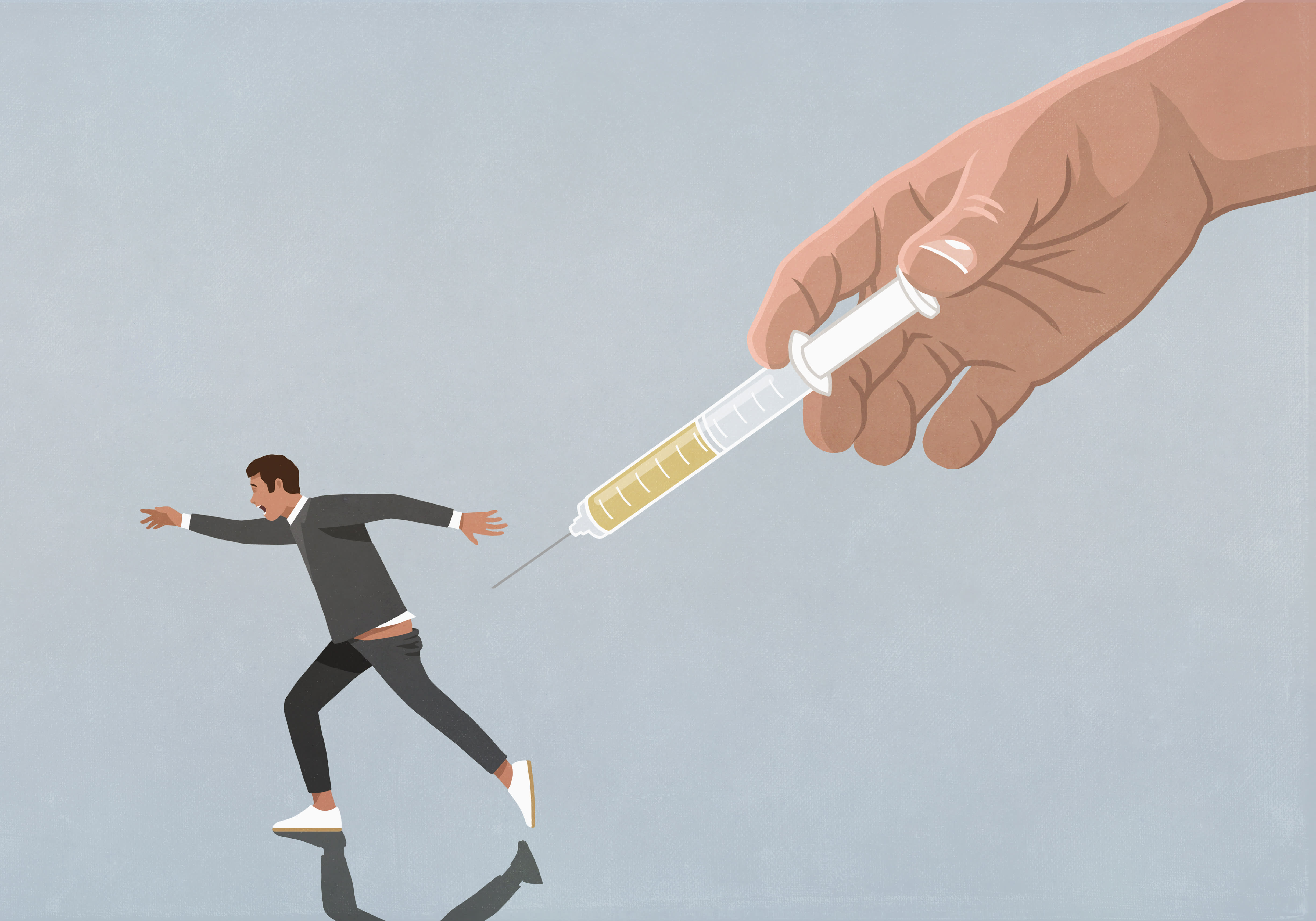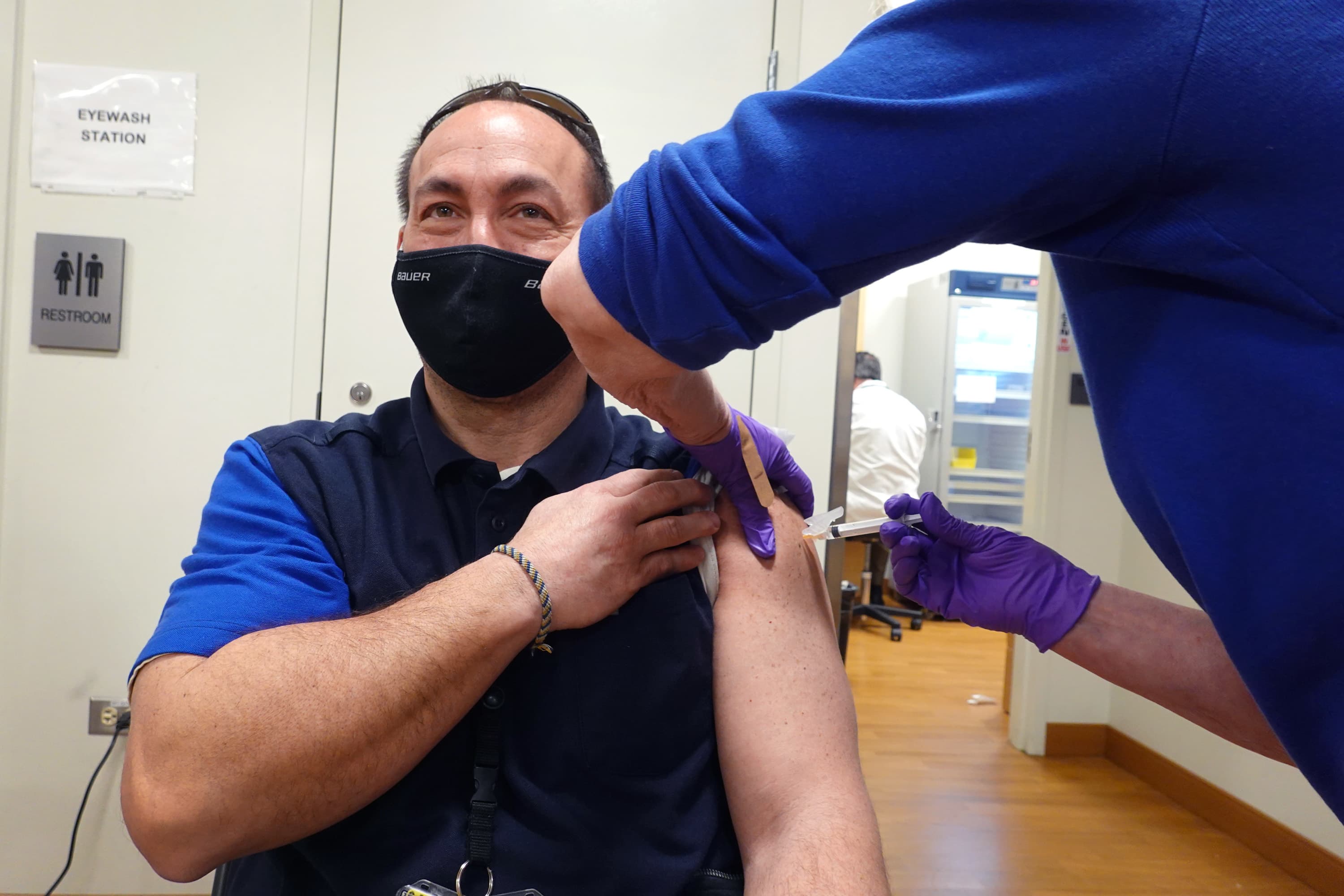Showing proof of vaccination against the coronavirus would be required to enter some indoor public spaces in unincorporated areas of Los Angeles County under a proposal that received a preliminary review from the Board of Supervisors Tuesday.
Supervisor Janice Hahn, who recommended the review, saicd she wants to gather advice from public health and other experts over the next two weeks. The motion unanimously approved Tuesday does not change anything, but it is a step in the approval process.
The board also can ask county staff and attorneys to report back in two weeks about what such a policy could look like -- for instance, whether it should apply to all indoor public spaces and events or certain nonessential ones only, and whether it should require full or partial immunization.
There's also a question of whether paper or digital records could be used to verify a person's vaccination status.
Get Southern California news, weather forecasts and entertainment stories to your inbox. Sign up for NBC LA newsletters.
"Nearly 4 million people in Los Angeles County are still unvaccinated and COVID-19 continues to spread more easily in indoor spaces, crowds and other settings where unvaccinated people are in close contact," Hahn wrote in her motion. "To prevent future surges and new variants from circulating, especially as we approach fall and winter, we must consider whether additional measures are necessary, such as vaccine requirements for certain settings."
Hahn's proposal comes on the heels of a similar motion being considered by the Los Angeles City Council. The city motion would require at least partial vaccination to enter indoor public spaces, including restaurants, gyms, concert venues, movie theaters and retail establishments.
Both the city and county are seeing jumps in the daily number of new COVID-19 cases, with most infections occurring among unvaccinated residents. The sharp rise in infections over the past two months has been attributed to the highly infectious Delta variant of the virus.
"With increased testing, our case numbers are likely to rise until we significantly reduce community transmission," Public Health Director Barbara Ferrer said last week. "… While indoor masking and quarantine and isolation of cases and close contacts are effective strategies for reducing transmission, the quickest way to slow the spread is to increase vaccination coverage."
She noted that the county has now seen three consecutive weeks of increases in the number of people receiving a first dose of vaccine, following months of declines.
That increase in vaccinations could be due, in part, to the state of California recently requiring all state workers to be vaccinated or regularly tested. The state is also mandating vaccinations for all health care workers.
Some cities, universities and private institutions also have recently mandated vaccines or regular testing for employees and students.
Although vaccinated people can get infected with the virus, Ferrer said they are far less likely to become seriously ill or require hospitalization.
From May 1 to July 17, unvaccinated people were nearly four times more likely to be infected with COVID-19 than were vaccinated residents, Ferrer said. Of the 3,158 people who were hospitalized in the county during that time period, 8% were fully vaccinated. She has also noted that some of the hospital patients with COVID-19 were actually admitted for other reasons, and only discovered they were infected during routine admission screening.
Between April 1 and July 18, 95.2% of the people age 16 and older who died from COVID in the county were unvaccinated, Ferrer said.
Hahn's motion notes that New York City has already implemented a vaccine mandate to enter certain indoor businesses, including restaurants, entertainment venues and gyms.
According to preliminary data from New York City, the mandate has been effective in getting more people vaccinated. Last week, almost 80,000 New Yorkers got their first COVID-19 vaccine dose, which was a 40% increase from the number of residents who got their first shot in the first week of July, according to Hahn's motion.
"Vaccines remain the most powerful tool in our recovery journey, as those who are fully vaccinated have a significantly lower risk of severe illness, hospitalization or death than those who are unvaccinated," Hahn wrote in her motion.



